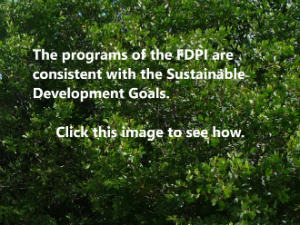By Lloyd Gardner November 1, 2011
The Caribbean community is reminded constantly that the tourism industry produces significant economic benefits to Caribbean economies. Less discussed, but of major concern, are the environmental and social costs associated with Caribbean tourism development. Though there have been previous attempts to identify the environmental impacts associated with tourism in the Caribbean, the costs of such impacts have not been quantified. Similarly, the social costs associated with the approval, construction, and operation of tourism-related physical plant in the Caribbean have never been fully identified or quantified.
During the past decade, the social conflicts associated with tourism development in the Caribbean escalated dramatically in number and scale. Opposition to a number of projects in several countries included efforts to mobilize international support, and even resulted in lawsuits. These conflicts increase the time required for development approvals, as well as the associated development costs.
Yet there is little information on the costs of these conflicts, whether to the developer, regulatory agencies, opposing groups, or adjacent communities. At the level of the individual project, there is insufficient data regarding how such costs have affected the financial viability of each project. Some conflicts often generate social dynamics that can have negative impacts on the operational phases of such projects. A related long-term cost is that some countries are perceived to be unfriendly or anti-development, which affects external private investment.
It is assumed that if the contributing factors in the social conflicts can be identified, they can be prevented or mitigated. An appreciation of the cost of conflict resolution should encourage the interested parties to work to reduce potential conflicts. Similarly, it is assumed that increased understanding of the sources and causes of conflict will enable developers and regulatory agencies to develop improved processes to prevent potential conflicts. Such an outcome should improve the viability of projects, and eventually increase the contribution from the tourism sector.
Lloyd Gardner is an environmental planning consultant and President of the Foundation for Development Planning, Inc.

No Comments Yet - be the First!